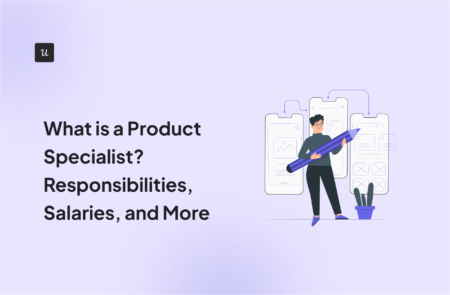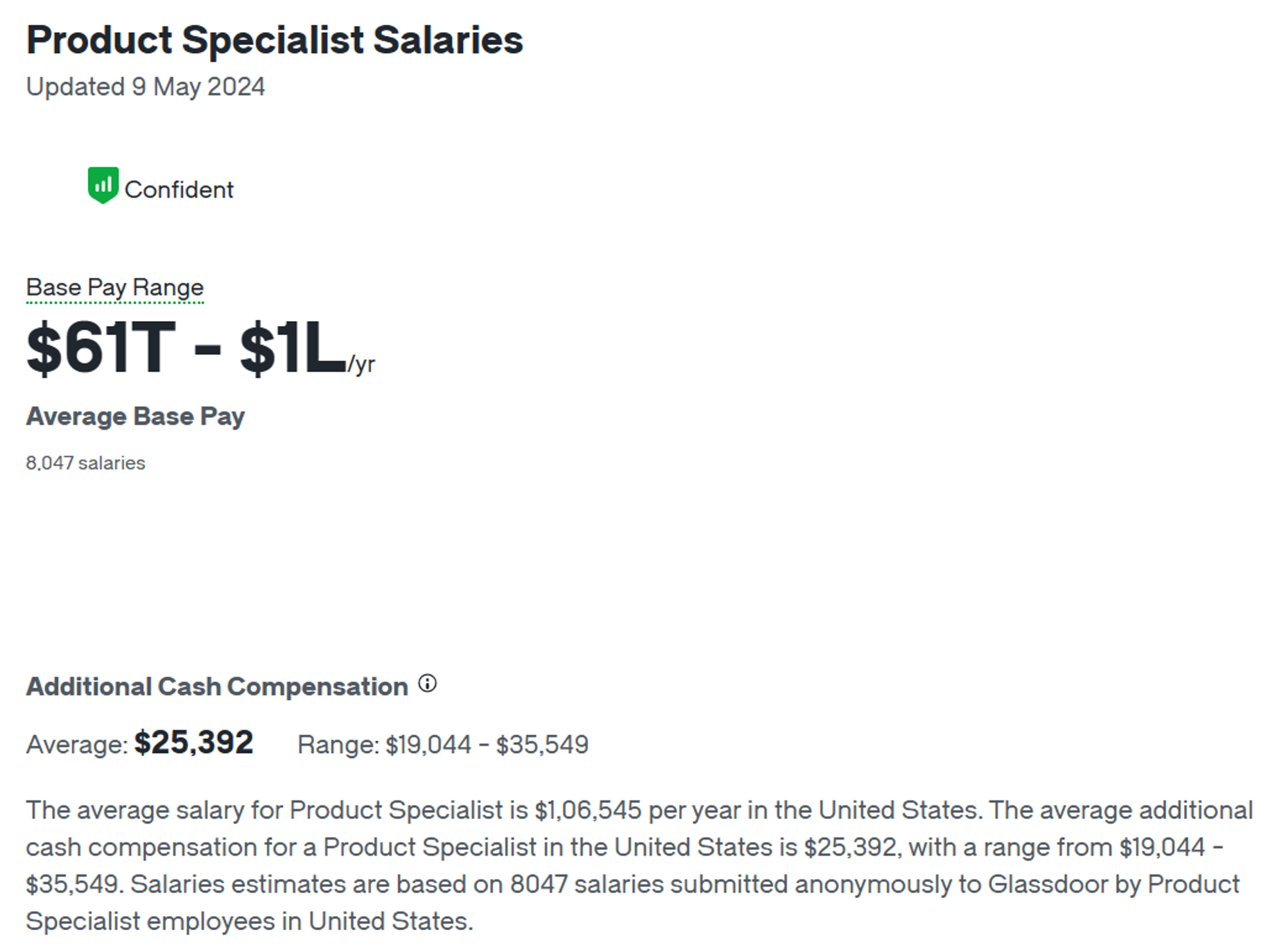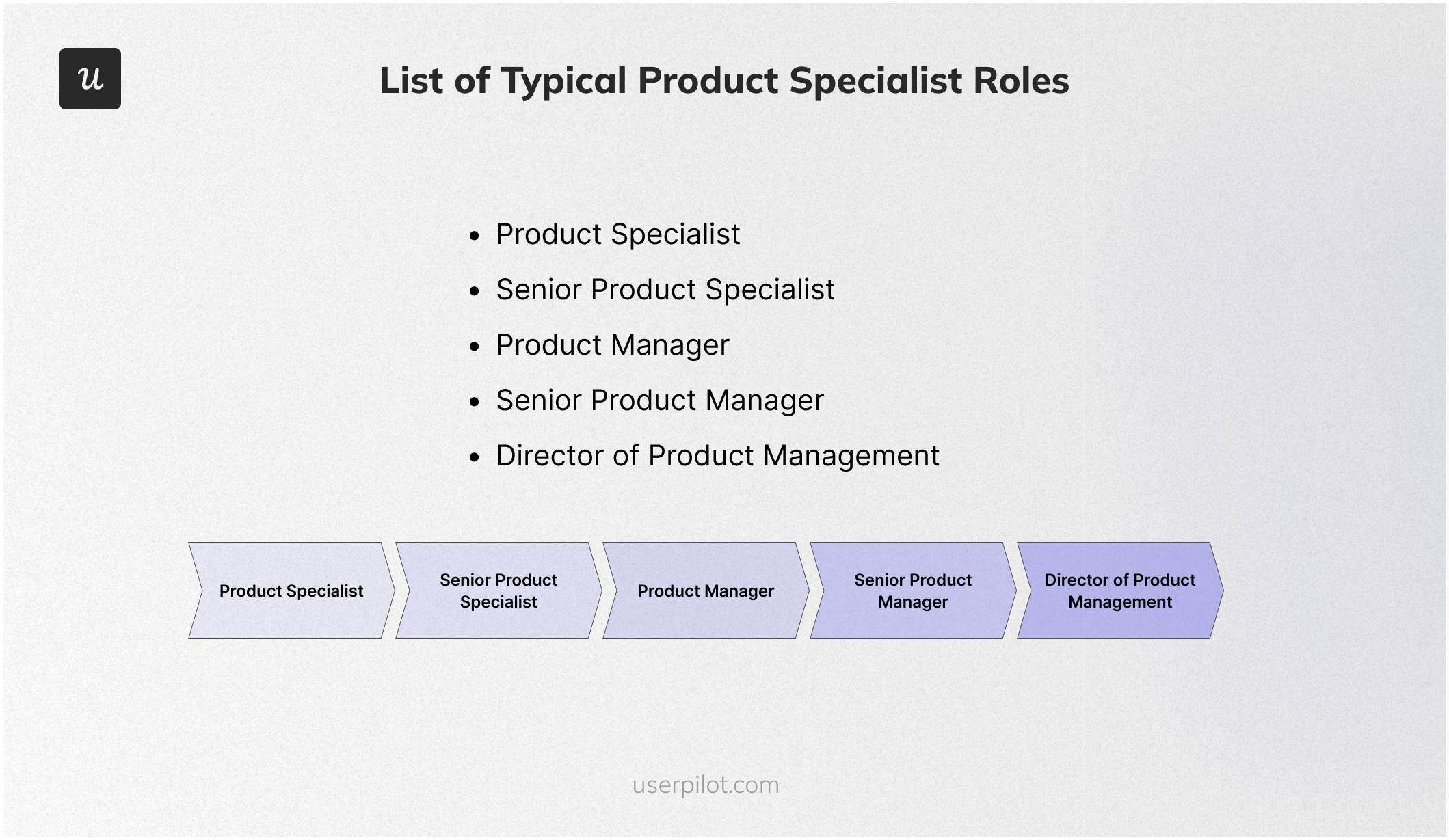
Whether you’re a seasoned professional or new to the field, understanding the nuances of product specialists is essential for success.
In this guide, we’ll delve into the core responsibilities, salary insights, essential skills, and more, providing you with the knowledge and tools you need to excel as a product specialist.
What is a product specialist?
A product specialist is a professional who is responsible for ensuring a product’s marketability and profitability.
They combine in-depth product knowledge with a thorough understanding of user needs to drive continued product growth. They play a crucial role in aligning user expectations with product features and functionalities.
What does a product specialist do?
A product specialist collaborates with other teams, such as design and engineering, to review a product’s user interface (UI) and user experience (UX) to identify areas of improvement.
Additionally, they help customer support and sales professionals understand a product’s functionalities and use cases. They even work with marketing teams to analyze and predict market trends to ensure the product maintains a competitive position.
Product specialist’s main responsibilities
A product specialist acts as a liaison between product, marketing, sales, and customer support teams. Key responsibilities of a product specialist include:
- Research – They’re responsible for developing an in-depth understanding of a company’s product. Additionally, they have to analyze competing products to identify unaddressed gaps and growth opportunities. They also have to stay on top of user behavior and market trends.
- Collaboration – They must work with cross-functional teams to ensure that the product’s functionalities fulfill user needs. Also, they develop strategies to improve product adoption and help team members with their implementation.
- Feedback – They have to collect and analyze user feedback to identify ways to improve a company’s product offerings. Their insights are crucial to shaping the future direction of a product.
- Training – They’re responsible for educating customer support and sales teams about the product. Additionally, they train these team members to develop and implement strategies for improving user satisfaction and revenue.
- Customer interaction – They must engage in direct conversations with users to understand their needs and expectations.
Product specialist salary

According to Glassdoor, the base pay range of a product specialist is between $61,000 and $100,000+ annually.
Your experience level is a crucial factor that determines your salary as a product specialist. Here’s how your average annual salary can vary based on experience, according to data from Glassdoor:
- Product Specialist: $106,509 per year
- Lead Product Specialist: $95,938 per year
- Senior Product Specialist: $151,230 per year
- Principal Product Specialist: $199,234 per year
Industries where the demand for product-related roles is high are also the ones that offer higher salaries. Here’s a snapshot based on Glassdoor’s data:
- Technical Product Specialist: $128,527 per year
- Digital Health Product Specialist: $106,008 per year
- Food Product Specialist: $102,649 per year
Where you live also impacts your salary as a product specialist. Here’s how your pay can vary across major cities in the US:
- San Francisco: $122,389 per year
- New York: $122,720 per year
- Boston: $105,516 per year
- Washington, DC: $119,253 per year
- Chicago: $114,702 per year
Product specialist career path
The product specialist role offers ample opportunities to advance your career in different functions, such as product management and customer experience. You can even transition into leadership roles in marketing and sales.
Additionally, many product specialists leverage their experience to build their own SaaS products. Others choose to launch consultancy firms where they help SaaS businesses improve their product offerings.
The exact career trajectory depends on an individual’s goals and company structure. Here’s what the typical career path of a product specialist in a company looks like:
- Product Specialist (0-1 years): Most professionals start their careers as entry-level product specialists, focusing on understanding the product and analyzing market trends. You’ll also gain hands-on experience addressing user needs and helping with onboarding.
- Senior Product Specialist (3-5 years): In this role, you’ll supervise a team of product specialists and other professionals. You’ll have to become an expert in certain aspects of the product and outline strategies to enhance those features.
- Product Manager (5-6 years): After gaining experience as a senior product specialist, you can transition into the role of a product manager. Here, you’ll work closely with the senior management and oversee the entire product lifecycle, from concept to delivery and beyond.
- Senior Product Manager (6-10 years): This is a leadership role that involves overseeing the entire product team. Also, you’ll be responsible for working with cross-functional teams to ensure product strategies align with business goals.
- Director of Product Management (10+ years): In this top-level product management role, you’ll work closely with other C-suite executives to shape the company’s product portfolio and strategies.
Best practices for being a great product specialist
It takes more than the right degree or certifications to become a product specialist worth your salt. Here are a few tips to help you build a stellar career as a product specialist:
- Develop in-depth product knowledge: As a product specialist, you must have a firm grasp of the ins and outs of a given product. Look beyond features and functionalities to understand how the product helps users realize specific goals. Also, keep an eye out for where users struggle and identify areas of improvement.
- Embrace a customer-centric approach: If you want to help your product find its footing in the market, you must ensure it lives up to user expectations. That, in turn, requires you to develop a thorough understanding of customer needs, preferences, and pain points.
- Prioritize collaboration: A product specialist’s job doesn’t exist in isolation. You must be open-minded and willing to work in cross-functional teams to ensure continued product growth.
- Don’t skimp on lifelong learning: The best product specialists strive to stay on top of industry trends, changing user preferences, and new technologies. Consider attending conferences, webinars, and workshops to keep a finger on the market’s pulse. Also, it’s crucial to follow relevant online resources, such as blogs and podcasts.
- Choose the right industry/sector: Product specialists are in high demand across various industries, from FMCG and retail to tech. It’s up to you to assess your skills and core strengths and choose an industry that aligns with your career goals.
Product specialist FAQs
- Is product specialist a good role?
Pursuing a career as a product specialist offers an opportunity to combine technical knowledge with client interaction and strategic thinking. The role is in high demand across various industries, from healthcare and tech to consumer goods. It’s particularly suitable for individuals looking to build a career in product management or move to sales leadership roles.
- How do you become a product specialist?
Most companies require product specialists to have a bachelor’s in business, computer science, marketing, or a related field. Besides getting the necessary qualifications, it’s also a good idea to gain professional experience through entry-level roles in market research, sales, product, or customer-facing teams.
- What is a product specialist vs. a product manager?
A product specialist is responsible for analyzing market trends and competitor products. They collaborate with other teams to build strategies that ensure the product’s marketability and profitability.
On the other hand, a product manager works with design and engineering teams to get a product ready for users. They’re responsible for identifying must-have features and functionalities based on customer needs. A product specialist with enough experience can go on to become a product manager.
- What is the role of a product specialist?
A product specialist is responsible for ensuring that a product meets user needs and retains a competitive position in the market. They work with other teams, such as design, marketing, and sales, to identify ways to improve the product and ensure its marketability. They play a crucial role in driving a product’s continued growth.
Conclusion
We hope this guide has provided you with valuable insights into the roles, responsibilities, and rewards associated with this role.
Looking into tools for product specialists? Userpilot is an all-in-one product platform with engagement features and powerful analytics capabilities. Book a demo to see it in action!








